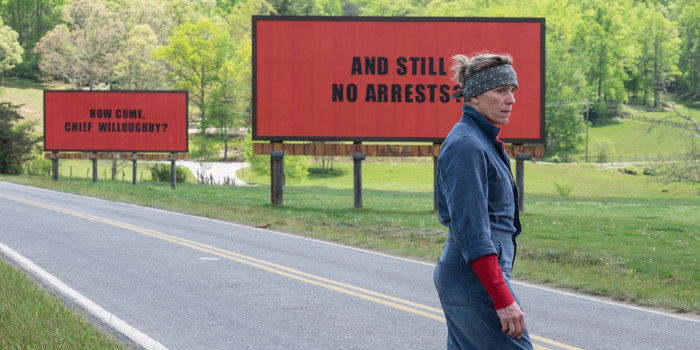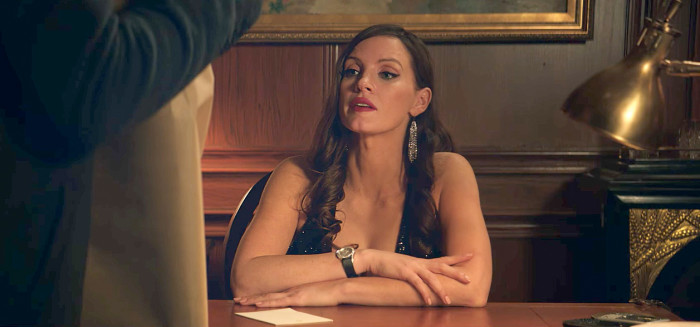'I, Tonya' And The Great "Unlikable" Female Characters Of 2017
As far as unlikable characters go, Olympic figure skater Tonya Harding has always been in a league of her own. She's got a potty mouth. She's never really cared about making friends. She's generally just not nice. And oh yeah, she was kinda sorta involved in one of the biggest sports scandals ever — a criminal plot to literally attack the America's sweetheart of figure skating, Nancy Kerrigan. Folks might get past the sharp tongue and cold stares, but if there is anything that will turn them off faster it is when a high-profile figure comes for the girl next door (just ask Kanye). Top that with the brazenly conservative '90s media takedown of the supposed black sheep of figure skating, who had frizzy hair, a bad attitude, smoked, and whose mom made her costumes — all of which were strictly taboo in the elite world of pretty upper crust young women who could twirl on ice.
So Harding didn't really stand a chance in that world, especially during that time. And it has left such a deep stain on her image that, even to this day ,she remains written off. But the new film I, Tonya sees to it that her story gets told anyway and in her own words, whether people want to hear it or not.
Calling the movie a satire would diminish the fact that it's a true story about a woman who always got the short end of the stick and somehow found the drive to keep fighting anyway. However,, it's so biting and matter-of-fact that it makes you chuckle at times — sometimes out of discomfort but other times because Margot Robbie as Harding and Allison Janney as Harding's mom are just so pretentious about all the wrong things that you laugh to keep from feeling sorry for them. It's a compelling story seeped in bitterness and nostalgia — over what was and what never became — that you begin to wonder why it took so long for to give her complete agency even when it stings. But then you remember, women like Harding are supposed to be marginalized, because it's easier for us to continue throwing rocks at them that way.
Does that mean that characters like Harding deserve a second chance, or even a first chance at redemption in the case of Mildred (Frances McDormand) in Three Billboards Outside Ebbing, Missouri? She's more than a little curmudgeonly, stemming from the heinous rape and murder of her daughter whose perpetrators remain free. Actually, Mildred is stark raving mad, waging war against the police department, her teenage son Robbie's (Lucas Hedges) disrespectful high school peers, and one racist, hotheaded cop (Sam Rockwell) who — in her own words — would much rather harass innocent black men than bring to justice her daughter's killers. Obviously, she's got a lot to be angry about with good reason.
But then she's also mean to seemingly the sweetest man in town James (Peter Dinklage) for literally no reason at all, even after does her a really big solid. Like Harding, she's bitter because life refuses to apologize to her. No, she's not winning people over (and I don't think it matters to her whether she does), but how many people wondered who she was before this happened to her daughter, before we, the audience, meet her? Was she a nice, smiling woman who waved hi to everyone she came across in her small town? The truth is, it doesn't matter who she was. And it doesn't need to be redeemed or further explained. She is a grieving mother who, in addition to her daughter's death, is tortured by the fact that her last words to her were said in disgust. She can't move on because this is who she is now, and what does it matter if she doesn't want to give the time of day to the first nice guy who shows her some attention. If Mildred was a man, this wouldn't even be a thought.
The same could be said about high roller Molly Bloom (Jessica Chastain) in Molly's Game. She is the puppetmaster behind the most exclusive poker game across the nation — for which men give up their entire trust funds, bank accounts, and families. She's spent her whole life dodging true friendships in favor of cold hard cash and the constant feeling of winning, more specifically winning over men. She's not mean. She doesn't kill people. Does she take advantage of men? Yes. Does she enable men to partake in an addiction that will only ruin them? Yes. Does she relish over watching trust fund men drop millions on a table only to lose it one hour later? Yes of course, because that's more money in her pocket.
So yeah, she doesn't make many friendships — not even with the men who come to her games night after night secretly ogling her slinky low-cut dress as they pick up another winning hand on the table. They may admire her looks, and even her hustle, but they can never get over the fact that the highest stake game in town is being run by a woman—and that she can at any moment make them bankrupt. Because money is connected to power. Power is connected to ego. And ego, in a man's case, is always connected to what's between his legs.
Molly may not have been mean-spirited but her success, untouchable beauty, and her defiant ego in a male-dominated room, are all seen as emasculating. While there are moments in the film that show how her father's tough love and growing up in an oppressively alpha male environment shaped her feminist ideals, we're never really made to feel pity for her. She's the protagonist, so there's always going to be a level of empathy for her, but do we feel sorry for her? No. She comes from bussing tables at a nightclub with men throwing singles at her to raking in millions of dollars — more than any man in her position had done before. We don't have to like her. But we can certainly respect her game, which is what matters here. It's not about winning Miss Congeniality. It's about having the allegiance to be unlikable and a woman at the same time.
That's really where we're at right now when it comes to the portrayal of women characters. Too often, the amiability of women on screen is the chief trait discussed in conversations about them being victims, successes, and even failures. Particularly during this sociopolitical moment in our history, should we really be spending time worrying about whether a woman is nice? These three films make it clear: the answer is a hard no.


